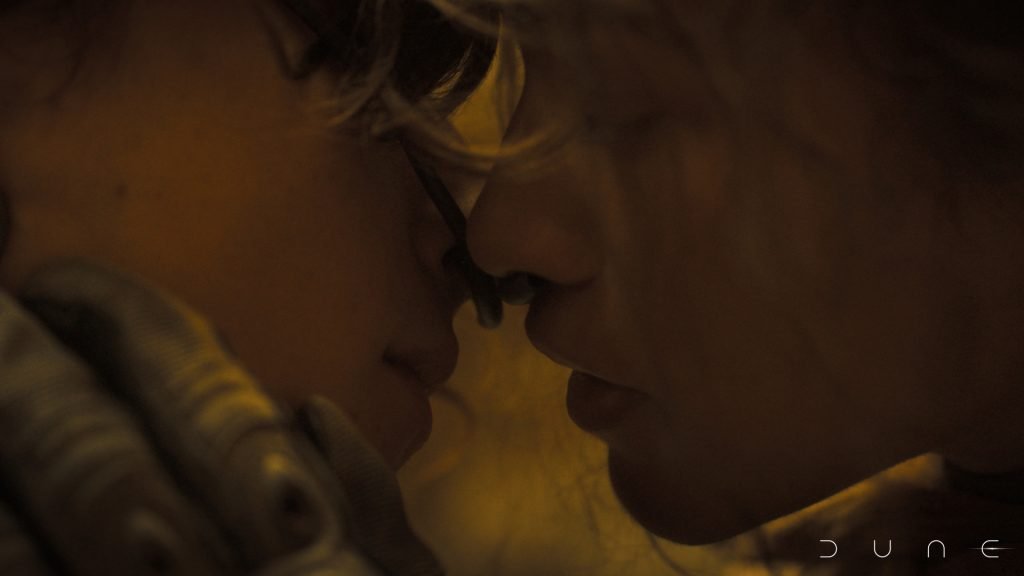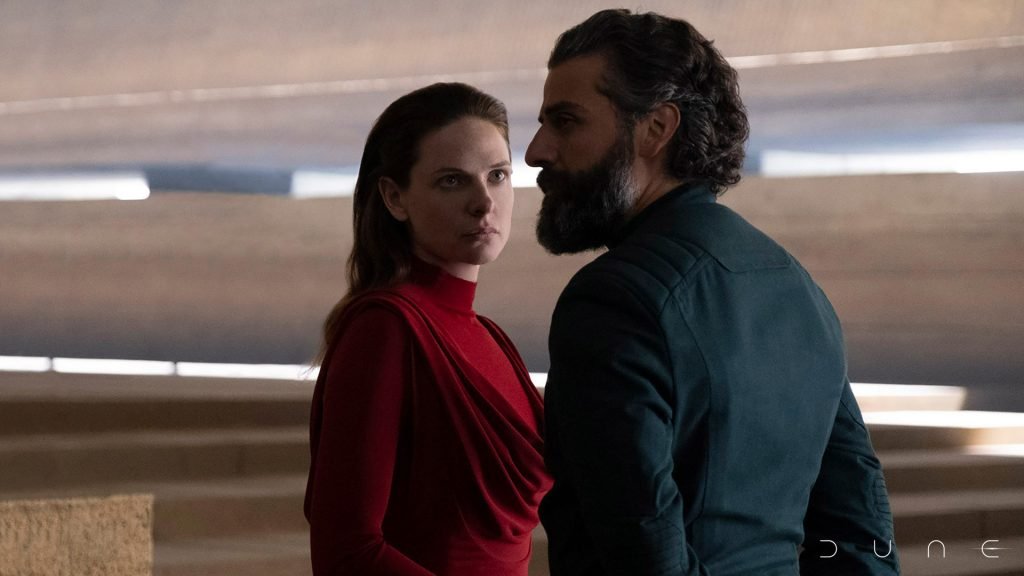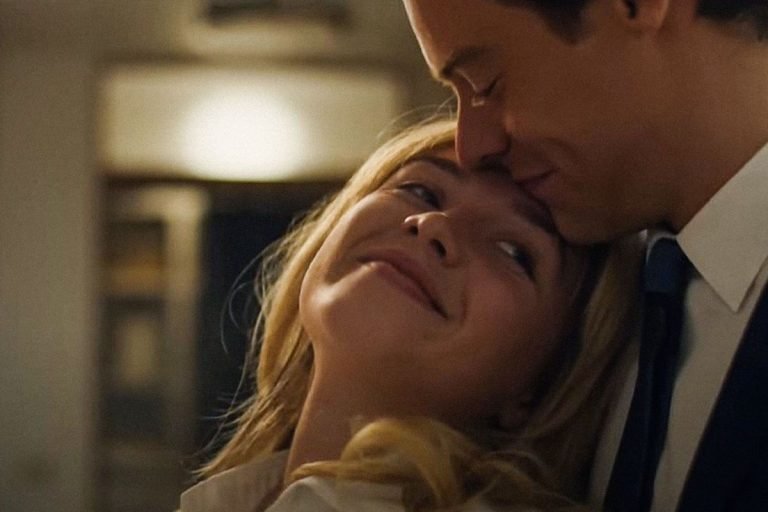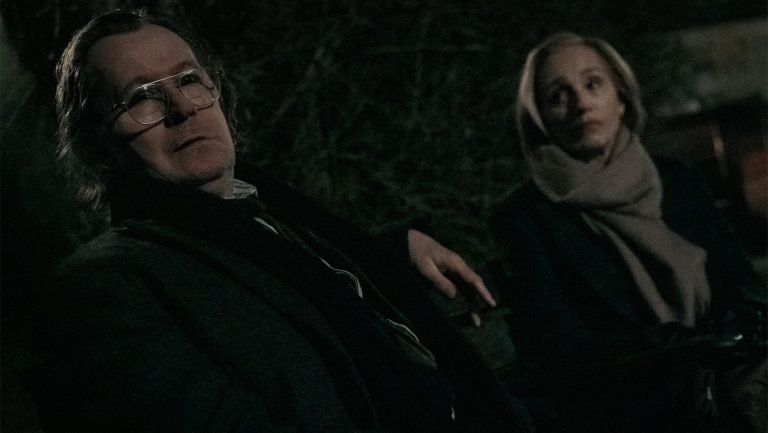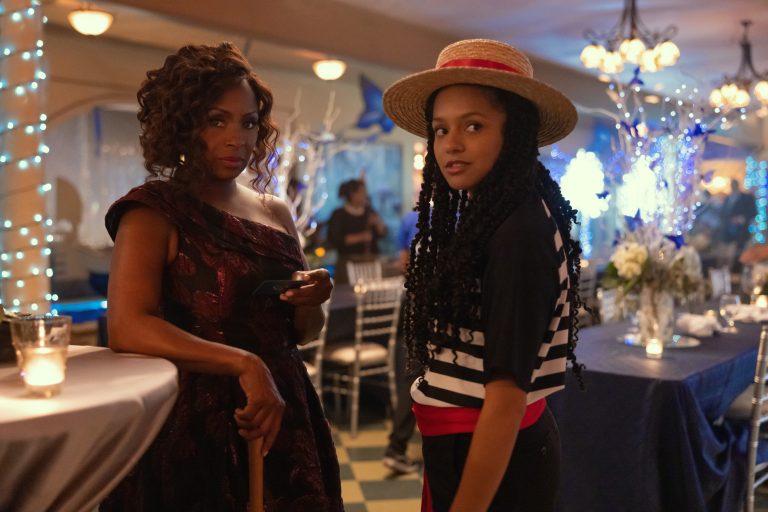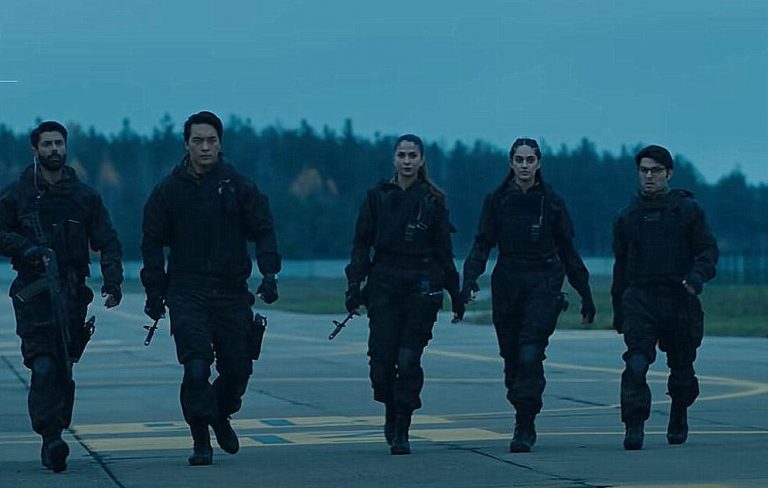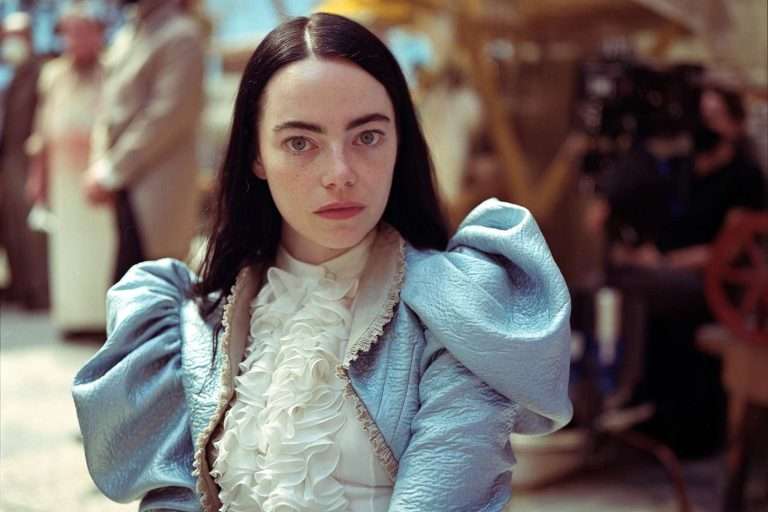This is a movie review of Dune (2021). Not a review of the Frank Herbert novel of the same name. Not a review of the David Lynch movie of the same name. Not a review of the unmade Alejandro Jodorowsky movie of the same name. Not a review of Denis Villeneuve’s filmography or the cast and crew of Dune. This is a review of Denis Villeneuve’s Dune.
It’s necessary to clear these things out because there are a lot of weird hot-takes that originated from the movie’s lengthy festival tour, international premieres, etc. floating around in cyberspace. And almost none of them are bothered with talking about Dune. Some are about how it fares as an adaptation. Some are adamant about convincing people that it should be viewed on the big screen or it shouldn’t be viewed at all. Some are complete misinterpretations of the subtext. Some are just bitter that it’s fan-service for Timothée Chalamet and Zendaya’s fans. But here we are going to talk about Dune and Dune only, the craft that’s on display, and more.
Directed by Villeneuve and written by Jon Spaihts, Villeneuve, and Eric Roth, Dune (or as it is titled on-screen, Dune: Part One) opens on the desert planet of Arrakis, home to the native Fremen people that has been ravaged by House Harkonnen for their invaluable spice for many years. But for some inexplicable reason, by imperial decree, the Harkonnens are told to vacate the planet, thereby apparently bringing their reign to an end. And the responsibility of looking over Arrakis is transferred to the noble House Atreides, whose leader Duke Leto Atreides (Oscar Isaac) thinks that this move is going to put them in political danger. However, soon after arriving on Arrakis, they realize that the entirety of House Atreides is at mortal risk as the Harkonnens aren’t particularly happy that their steady flow of money has been disrupted.
As mentioned before, there’s a slim chance that you haven’t heard the phrase “meant for the big screen” associated with Dune yet. And to be really honest, it is true. If there was no risk of being infected, because the coronavirus pandemic is still raging on, and if you didn’t have to sit in the theater with your nose and your mouth stewing in the sweat accumulated from the trip to the theater, a big screen viewing would’ve been advisable. Since it isn’t, watching it on the small screen with the volume turned up to 1000 is the next best thing. Because Villeneuve, along with cinematographer Greig Fraser, composer Hans Zimmer, editor Joe Walker, production designer Patrice Vermette, and the teams who have worked on the VFX, SFX, art direction, set decoration, sound design, and costume design, have created an audio-visual ecosystem that you would love to be tucked into.
Fraser’s palette is muted, often limited to shades of grey, black, white, blue, and yellow. But it’s the composition of the shots and Walker’s editing that makes them so engaging and sometimes incredibly hypnotic as well. For example, the entire altercation between Paul, Lady Jessica (Rebecca Ferguson), and the Bene Gesserit Reverend Mother (Charlotte Rampling), right from the moment Jessica senses the Reverend Mother’s arrival to the revelation that Paul is a “chosen one” kind of figure, is so enticing. Despite being draped in only black and white, and one small source for the color yellow and with little-to-no camera movement, Villeneuve (along with his team) manages to fine-tune the lighting, the smoke, and the depth-of-field just right to convey the ominous nature of that moment. There’s a shot where the Reverend Mother stops to warn Jessica and in addition to them, it features three other figures in the background. There’s no practical reason for them to be there. However, it makes the frame more dynamic than the frame without them.
[tabs]
[tab title=”Checkout” icon=”iconic-info”]Every Denis Villeneuve Film Ranked[/tab]
[/tabs]
What’s even more interesting is that Villeneuve constantly manages to walk this fine line between capturing the intimacy of Paul’s jarring journey and the dry grandeur of Arrakis. In fact you can see the spots where Dune could’ve become an over-indulgent mess, resorting to only extreme close-ups of the sand dunes or the giant worms or expository scenes about the world the movie is set in to sell the discombobulated perspective of Paul. But with the help of Spaihts, Roth, Walker, and Fraser, Villeneuve always manages to keep things fantastical, supernatural, unbelievable, and yet decipherable. Part of the credit for that also goes to Zimmer, and the sound design and sound mixing teams, who have knocked it out of the park here. If you cut off the visuals and just listen to the movie, it will still ooze so much darkness. They manage to make the air feel heavy but through sound by primarily focusing on the architecture or this alien atmosphere created by the spice, and how the wind passes through it all, thereby audibly emulating the chip on Paul’s shoulder.
Isn’t that mind-blowing or isn’t that mind-blowing?
Coming to the plot and the writing of Dune, in addition to Paul’s coming-of-age story, it clearly has a lot to say about greed (greedy men, to be specific) and how it gives birth to civilization-ending things such as wars, fascism, and colonialism. There are very obvious parallels with events from the distant past i.e. England invading India for resources, or from recent events such as the USA’s invasion of Iraq for oil, and how it’s fueled by nothing but ego. Again, male ego, to be specific. Because it’s all about various men sitting in various corners of the universe saying, “If that exists, why can’t I have it?” Early on in the movie, it’s mentioned that the spice on Arrakis is essential for interstellar travel, making it the most precious element in the galaxy. So, it has to be mined in massive proportions without thinking about the people dying there? How does that make sense? Which is precisely the point. Nothing is more valuable than the life of a living being.
Dune spends most of its time on Arrakis, which is meant to look barren but it obviously isn’t. Or else so many Houses wouldn’t be fighting for it, right? But it doesn’t have one thing that’s necessary for survival: water. When you look at Caladan, Giedi Prime, and Salusa Secundus, you see that they have enough of it. They can survive without traveling through space, for which they need the spice. So, you see how the Imperium has created a problem where there wasn’t one and are now fighting each other in order to solve it? Which is exactly the case in real life too! Every country is sustainable or at least was sustainable at some point or should’ve been sustainable by now if they weren’t dealing with wars, oppression of minorities via religious bigotry (something that Dune also comments on), and the damage on the environment caused by neglect. However, in its attempt to provide a (fictional) solution, Dune exposes its problematic bits.
Yes, with the “chosen one” plot-line, it comes close to presenting Paul as a White Savior (a cinematic trope in which a white character rescues non-white characters from unfortunate circumstances). It looks doubly troublesome due to the presence of North American, British, Spanish, and well, non-Middle-Eastern or Arabic actors in roles that are definitely inspired by Middle East and Arab countries. The dialects, etymology of certain words, date palm trees, and costumes are a dead giveaway for the Muslim influences. So, why didn’t that reflect in the casting? We will never know. There’s a clear effort to subvert those criticisms by showing how Paul doesn’t want to be the chosen one i.e. the White Savior. In fact, he doesn’t want a war. But it seems like the movie is trying to say that a good tyrannical ruler is better than the bad tyrannical rulers who are vying for Arrakis. Which then brings us to the incomplete nature of the plot.
At the time of writing this review, nobody knows if or when the second part of Dune is going to drop. Because film-making is a very unpredictable thing, made all the more unpredictable due to the predicament we’re in caused by the coronavirus pandemic. Hence, if we look at Dune as just one, complete movie, it only manages to plant the questions about colonialism, warmongering, fascism, waiting for a hero versus being one’s own hero, and merely hints at the answers. Will they be answered comprehensively in the second part? We don’t know. That’s not good storytelling. It’s idealistic. It’s optimistic. But it’s inconclusive as well. And that opens the door to picking apart other technical aspects such as the hand-to-hand fights, which are shot poorly and choreographed weirdly. You cannot end your movie on such a weak note i.e. that fight between Chalamet and Olusanmokun. It’s preceded by these intricately crafted attack sequences and worm sightings. Then you finish with that? Not done, Denis.
Now, although Dune is inconclusive, this review won’t be. Denis Villeneuve is undoubtedly firing on all cylinders and so is Spaihts, Roth, Zimmer, Walker, Chalamet, Ferguson, Isaac, Jason Momoa, Stellan Skarsgård, Josh Brolin, Dave Bautista, and the rest of the cast and crew. The scale and scope is palpable. It is atmospheric. It is brooding. At times it is haunting. It is dreamy. And you cannot stop yourself from being completely engulfed by Dune’s elaborately crafted world and even feel that you’re losing your mind a bit because your brain isn’t used to processing such an audio-visual assault to the senses. However, when the dust settles and you return to Earth, you might have a subtle feeling of hollowness due to the incomplete plot lines and the unanswered questions. This means that maybe, just maybe, the best way to view and judge Dune: Part One is when the promised Part Two releases.
Also, Read – Everything We Know About Denis Villeneuve’s ‘Dune: Part Two’: Release Date, Trailer, Plot, And The Cast
